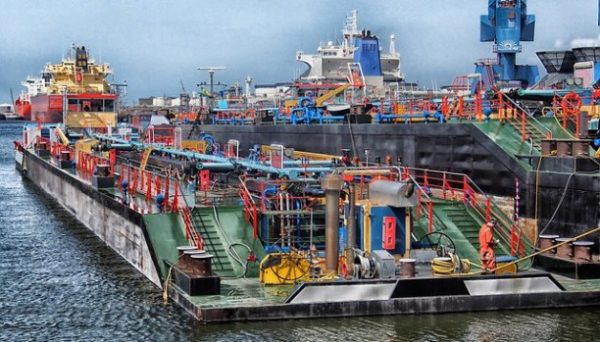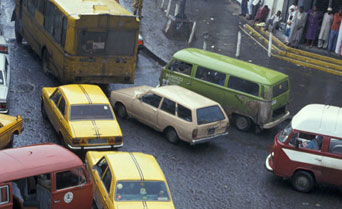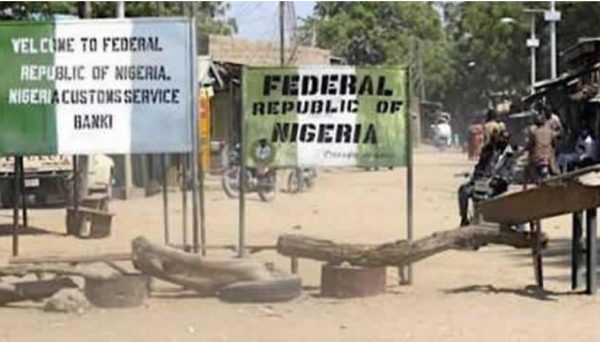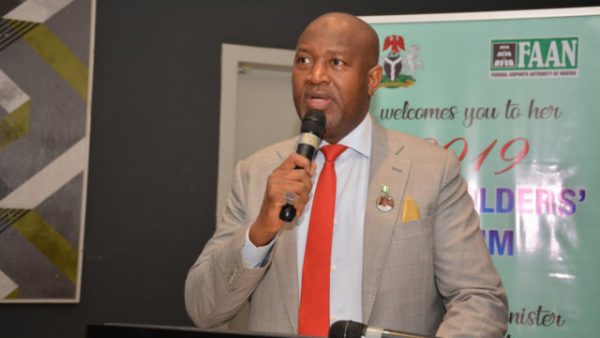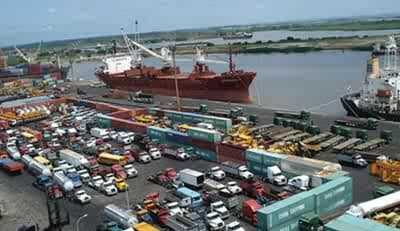Merging Talks With Action In Nigerias Maritime Industry
“Duty makes us do things well, but love makes us do them beautifully.” – Zig Ziglar
In tandem with the above assertion, those who accept responsibilities might do it only to meet certain requirements or please the authorities but those who are passionately involved go extra miles in achieving results and ensure that things are done excellently and sustainably without necessarily seeking to impress anyone.
It is no more news that the Nigeria maritime industry is confronted with numerous challenges ranging from gridlock, bad road networks, corruption, insecurity, and many others too numerous to mention especially at the ports.
Stakeholders have debated overtime and acknowledged that Nigeria operates on the most harsh and unfavorable maritime policies in the world, hence, the difficulty in engaging in legitimate trade by those who seek to make skyrocketed gains in their businesses.
On daily basis, stakeholders meet to deliberate on these issues with a view to putting them to a final rest. In pursuance of this, facilitators and experts are invited from within and outside the continental shelfs and territorial waters of Africa. For decades, the trend has remained the same with very little or no positive impact despite brilliant recommendations made at the meetings.
The ports environment is getting worse everyday as it is now home for destitutes and criminals and business activities are made to look like that of the primitive ages.
Government policies remain inconsistent and contradictory while ports operators’ fates are solely dependent on the mercy or otherwise of corrupt enforcement agencies at the ports.
Government regulatory agencies spend millions of naira hosting cosmetic events and meetings at five star hotels without putting the resolutions and recommendations made into action or implementation.
What is wrong with our nation that things are getting worse on daily basis? Is it that we are short of human power? Are the authorities oblivion of the reality or deliberately creating these problems?
The fact remains that Nigerians lack the will and patriotic spirit to do the right things. Also wrong persons are entrusted with sensitive positions of authority where decisive decisions are to be made. MMS Plus has observed in recent times that the authorities are cognizant of the problems. The policy makers and the enforcement agencies are grounded; they travel abroad and can see how things are being done. They read literatures and watch on television what the global trend is on shipping businesses. They are also equipped with the solutions but the will to act by doing things right is absent because of apetitive and selfish desires.
Speaking at the MMS Plus CEO roundtablerecently, the President, Association of Nigeria Licensed Customs Agents (ANLCA), Prince Olayiwola Shittu observed that corruption and illegal business transactions including wrong declarations and other related atrocities are encouraged by Customs officers. According to him, a person who made the correct declaration would suffer the same fate as the insincere agent or importer, hence the unconscious legitimization of these illicit acts. Astonishingly, the Customs bosses aren’t denying their awareness of these. They send their men for trainings on regular basis, yet unprofessional conducts characterize the entire administrative systems.
The Nigeria Agricultural Quarantine Services (NAQS) know their job, but they prefer to be induced without doing the needful. The Navy, Police and other security agencies at the ports rely on illegal trade to make ends meet. How then do we expect compliance? One would wonder what those conferences are all about. People speak grammars and present brilliant papers but all of these end at the event’s venue.
Recently at a stakeholders’ meeting in Lagos, Captain Olugunwa expressed disappointment in the content and pattern of discuss.
He said ” I am surprised at what I am seeing here. Are we in a dysfunctional society where things don’t work?. I expected us to be talking on improvements on the earlier made resolutions and not taking us to forty years back. I am very surprised”
The Minister of Works, Power and Housing, Babatunde Fashola complained while he was Lagos state governor that what was delaying the rehabilitation of the Apapa- Wharf and Tin Can Island Port roads is the Political differences between state administration and federal government. Today, Lagos state is not just being ruled by the same political party with the federal government, Fashola is also in charge of work ministry. Then what is hindering them from giving the road the desired face? Save the intervention of Dangote and Flour Mills, the Apapa road wouldn’t have gotten any attention.
Just last year, the NIMASA Director General, Dakuku Peterside said that Nigeria spent a little less than N100,000 million on its ambition of getting elected into the IMO Council. An agenda that was described as misplaced priority.
The Nigeria Ports Authority (NPA) management under Ms. Hadiza Bala Usman has been holding quarterly meetings with ports stakeholders, the most recent was held early this year. Decisions were made, instructions were given with probable sanctions for disobedience. Yet, all still remained as it were. The trucks are still visibly seen on the road as usual with empty containers. Terminal Operators have introduced more arbitrary charges.
The ease of doing business policy is now becoming a fiction.
The controller, Federal Ministry of Works, Power and Housing, Lagos, Engr. Godwin Eke alerted stakeholders and warned against the dangers of indiscriminate parking of trucks and trailers on the bridges but none is giving it a listening hear probably until the bridges collapse. This has become a major topic in different fora. It is then rational to question the reasons for not merging words with action in solving the myriads of problems confronting our maritime industry in Nigeria.
This is the time to swing into action. Enough of the ceremonial conferences and committee meetings; let’s reappraise our implementation strategies and make things work as it is in other developed nations. Attitudinal change is required. Our nation needs transformational leadership that will merge words with actions.
It is time to reshape our image and correct the erroneous impression held by the international community on maritime industry.
Copyright MMS Plus.
All rights reserved. This material, and other digital content on this website, may not be reproduced, published, broadcast, rewritten or redistributed in whole or in part without prior express written permission from KINGS COMMUNICATIONS LIMITED.


